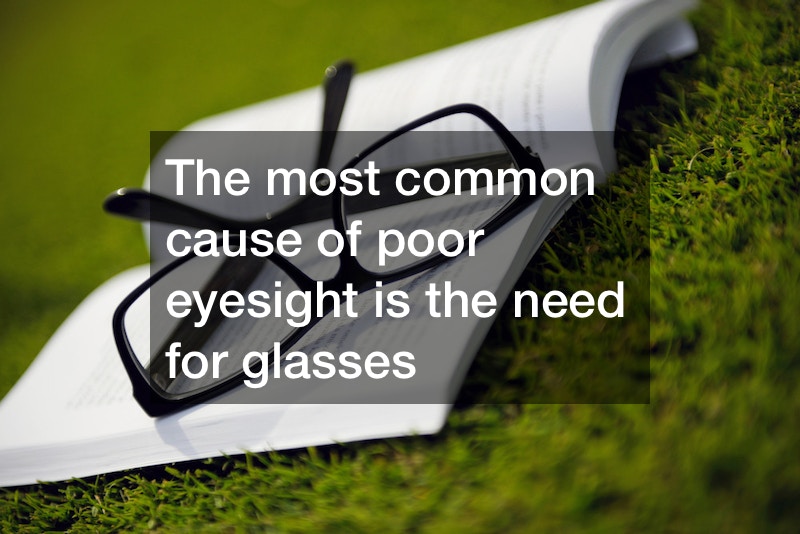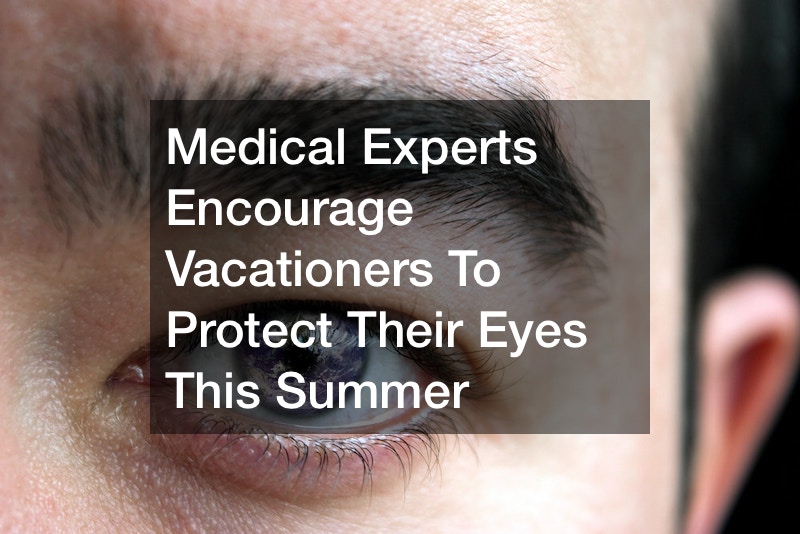Medical Experts Encourage Vacationers To Protect Their Eyes This Summer
Your eyesight condition matters more than you think. Poor eyesight can lead to accidents and other undesired situations. Moreover, if your eyes aren’t in the best shape, you can visit an optometric success center for a quick checkup. Talk with your doctor and see if you need glasses to improve your sight or if you have an eye disease or infection.

Eye diseases are a concerning topic that shouldn’t be taken lightly. Visit an eye disease care center and find the perfect treatment for your case. However, if you have an eye infection, you should visit an eye infection specialist instead. The most common cause of poor eyesight is the need for glasses. If you aren’t comfortable wearing glasses, you can schedule laser surgery in a medical surgical eye care facility. Lastly, you can use a contact lens if laser surgery doesn’t interest you. Find more about contact lenses and their use by searching online for a “contact specialist near me.”
Enhance your eyesight and be safer and more precise on the road. Call an optometrist and schedule a quick checkup.

The summer may be starting to wind down, but medical experts note that it’s just as important as ever to be aware of heat- and sun-related medical problems — and a shocking story from a mother who recently lost her eye to skin cancer is putting more focus on the sunglasses industry. 44-year-old Deborah Kane claims to have contracted the cancer after wearing cheap sunglasses on multiple sunny vacations, and she blames the sunglasses for failing to filter out the harmful UV rays which cause skin cancer.
Although Kane’s case is particularly serious, many health experts have noted that people often forget how important sunglasses are when spending time out in the sun. Many people, like Kane, are drawn to trendy shades which are both fashionable and extremely cheap, without realizing that these glasses provide little to no protection from UV rays. Optometrist Tara O’Rourke states that there are multiple things to consider when choosing a pair of sunglasses — and that investing a little time to pick out the perfect pair will pay off in the long run.
Many people won’t be surprised by O’Rourke’s tip that “bigger is better” when it comes to picking out sunglasses, but interestingly enough, a lens with a darker shade isn’t necessarily better. Some colors, like dark gray and dark brown, tend to keep color distortion to a minimum, but a color like light amber is more effective for filtering out harmful blue light. For activities like driving or boating, when you’re most likely to encounter harsh glares, polarized lenses reduce reflections.
And even more importantly than the color, the UVA and UVB protection number tells you how much light is filtered out in the lenses. A pair of glasses with a UV 400 sticker, i.e. a sticker indicating that the lenses offer 100 percent protection against harmful UV rays, should be the first thing you look for when picking out a pair of glasses. Many cheaper glasses don’t have any indication of how much light is filtered out, and these can be particularly dangerous.
“As more and more travelers venture overseas for vacation, they need to be highly conscious of the safety standards of the sunglasses they’ve bought,” says Craig Anderson, President of The Sunglass Fix. “As the owner of the Sunglass Fix, which focuses only on premium lenses, we see lots of glasses come in that look authentic but in reality are not genuine and do not offer UV protection. Additionally, they have zero safety protection and just have cheap glass lenses that can shatter into a thousand pieces – in these situations, they can make the exposure to UV rays significantly worse. These sunglasses allow your pupils to enlarge and allow UV rays to penetrate your eyes at a higher rate and cause significant damage.”










